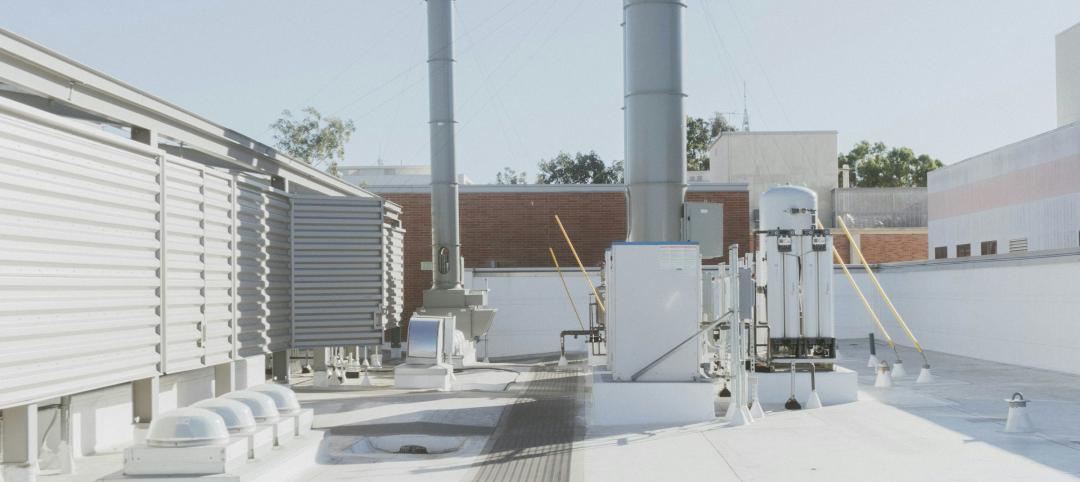The International Code Council recently revealed who will make up the committees for the development of its 2024 International Energy Conservation Code (IECC).
One-third of the appointees are government regulators. This is notable because the Council drew fire earlier this year for revamping the code development process. Critics charged that the new process would be less open and reduce the influence of regulators, thereby weakening energy efficiency standards.
“The committee appointees represent a wide array of experience in building types and energy efficiency strategies, as well as racial, gender and socio-economic diversity, composing balanced committees that represent a multitude of stakeholder interests,” according to a Council news release.
Among the appointments were:
· Duane Jonlin, Energy Code & Conservation Advisor, Seattle Department of Construction and Inspections, who will be the Chair of the Commercial Energy Code Consensus Committee.
· Emily Hoffman, Director of Energy Code Compliance, New York City Department of Buildings, who will take over as Vice Chair of the Commercial Energy Code Consensus Committee.
· J.C. Hudgison, Chief Building Official, Tampa, Fla., who will be Chair of the Residential Energy Code Consensus Committee.
· Bridget Herring, Energy Program Coordinator, Asheville, N.C., who assumes the role of Vice Chair of the Residential Energy Code Consensus Committee.
· Robin Yochum, Energy Program Manager, Nevada Governor’s Energy Office, who was appointed Vice Chair of the Residential Energy Code Consensus Committee.
Related Stories
Standards | Apr 1, 2024
New technical bulletin covers window opening control devices
A new technical bulletin clarifies the definition of a window opening control device (WOCD) to promote greater understanding of the role of WOCDs and provide an understanding of a WOCD’s function.
Office Buildings | Mar 21, 2024
Corporate carbon reduction pledges will have big impact on office market
Corporate carbon reduction commitments will have a significant impact on office leasing over the next few years. Businesses that have pledged to reduce their organization’s impact on climate change must ensure their next lease allows them to show material progress on their goals, according to a report by JLL.
Adaptive Reuse | Mar 21, 2024
Massachusetts launches program to spur office-to-residential conversions statewide
Massachusetts Gov. Maura Healey recently launched a program to help cities across the state identify underused office buildings that are best suited for residential conversions.
Legislation | Mar 21, 2024
Bill would mandate solar panels on public buildings in New York City
A recently introduced bill in the New York City Council would mandate solar panel installations on the roofs of all city-owned buildings. The legislation would require 100 MW of solar photovoltaic systems be installed on public buildings by the end of 2025.
Office Buildings | Mar 21, 2024
BOMA updates floor measurement standard for office buildings
The Building Owners and Managers Association (BOMA) International has released its latest floor measurement standard for office buildings, BOMA 2024 for Office Buildings – ANSI/BOMA Z65.1-2024.
Codes and Standards | Mar 18, 2024
New urban stormwater policies treat rainwater as a resource
U.S. cities are revamping how they handle stormwater to reduce flooding and capture rainfall and recharge aquifers. New policies reflect a change in mindset from treating stormwater as a nuisance to be quickly diverted away to capturing it as a resource.
Plumbing | Mar 18, 2024
EPA to revise criteria for WaterSense faucets and faucet accessories
The U.S. Environmental Protection Agency (EPA) plans to revise its criteria for faucets and faucet accessories to earn the WaterSense label. The specification launched in 2007; since then, most faucets now sold in the U.S. meet or exceed the current WaterSense maximum flow rate of 1.5 gallons per minute (gpm).
Adaptive Reuse | Mar 15, 2024
San Francisco voters approve tax break for office-to-residential conversions
San Francisco voters recently approved a ballot measure to offer tax breaks to developers who convert commercial buildings to residential use. The tax break applies to conversions of up to 5 million sf of commercial space through 2030.
Codes and Standards | Mar 15, 2024
Technical brief addresses the impact of construction-generated moisture on commercial roofing systems
A new technical brief from SPRI, the trade association representing the manufacturers of single-ply roofing systems and related component materials, addresses construction-generated moisture and its impact on commercial roofing systems.
MFPRO+ News | Mar 12, 2024
Multifamily housing starts and permitting activity drop 10% year-over-year
The past year saw over 1.4 million new homes added to the national housing inventory. Despite the 4% growth in units, both the number of new homes under construction and the number of permits dropped year-over-year.

















